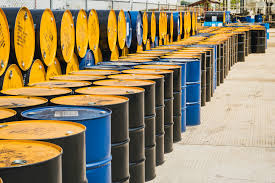
Akintunde Oyedokun
Research Analyst
Oil prices fell Tuesday as U.S. President Trump’s energy emergency declaration raised concerns of increased domestic production in an oversupplied market. Brent crude settled at $79.29 per barrel, down 1.1%, while February WTI futures dropped 2.6% to $75.89. Analysts pointed to record U.S. output, weak demand, and OPEC+ production cuts. The EIA forecasted lower oil prices due to strong global supply and slower demand growth. Tariff delays on Canadian and Mexican imports and potential Venezuelan oil purchase changes further influenced the market. The easing of Red Sea shipping disruptions also contributed to price pressures.
Canada’s Inflation Drops to 1.8% In December Amid Sales Tax Relief
Canada’s annual inflation rate fell to 1.8% in December, aided by a sales tax break that reduced prices on alcohol, restaurant meals, and children’s clothing, Statistics Canada reported. The Consumer Price Index (CPI) also declined by 0.4% month-over-month.
The tax break, covering 10% of the CPI basket, remains in effect until mid-February. Analysts had forecast a 1.9% inflation rate.
With inflation below the Bank of Canada’s 2% target since August, another rate cut is likely, with markets pricing an 81% chance of a 25-basis-point reduction. Core inflation measures CPI-median and CPI-trim continue to edge closer to the target range, reflecting moderated price pressures.
Fed Faces New Economic Challenges Amid Rising Bond Yields, Trump Policies
The Fed is expected to keep interest rates steady, with Chairman Powell adopting a cautious stance. While long-term inflation expectations remain stable, concerns about increased government borrowing and its impact on the economy persist, as higher yields could challenge sustained economic growth.
Zambia Pins Economic Revival Hopes on Mining Sector
Zambia aims to boost its economy through mining after a sharp slowdown caused by the worst drought in memory. Finance Minister Situmbeko Musokotwane shared that new and expanded mines could lead to increased output, with copper production rising to 770,000 tons in 2024, and a target of 1 million tons by 2026. Despite a revised 2024 growth forecast of 1.2% (down from 2.3%), the government remains hopeful for long-term recovery. Zambia also aims to reduce its budget deficit to 3.1% of GDP, while negotiating debt restructuring terms with China.
NNPCL Uncovers 55 Illegal Refineries, 29 Pipeline Connections In One Week
The Nigerian National Petroleum Corporation (NNPCL) discovered 55 illegal refineries and 29 illegal pipeline connections across the Niger Delta between January 11-17, 2025. The operation resulted in 179 oil theft incidents, the arrest of 30 suspects, and the discovery of illegal oil installations. Key collaborators in the effort include Shell, Oando, and government agencies. The operation identified hotspots in Rivers, Abia, and Bayelsa states. Nigeria loses billions daily to oil theft, contributing to pollution and a decline in oil production.










